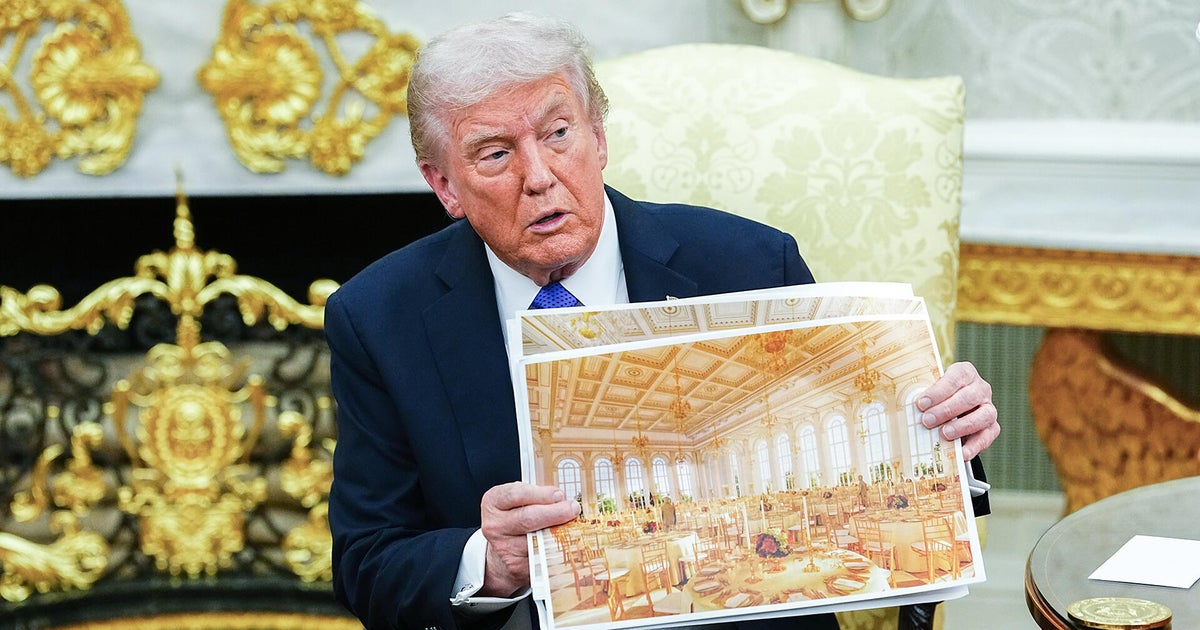Top Pentagon policy official who signed off on Ukraine aid resigns at Trump's request
Washington — The Pentagon's top policy official who initially signed off on the release of military aid to Ukraine is leaving his post after President Trump requested he step down, according to his resignation letter.
"Senior administration officials appointed by the President serve at the pleasure of the President, and therefore, as you have requested, I am providing my resignation, effective February 28, 2020," John Rood, the under secretary of defense for policy, wrote in the letter obtained by CBS News.
CNN first reported Rood was expected to leave the Defense Department, citing sources who said he lost the support of top national security leaders. Mr. Trump confirmed his departure in a tweet later Wednesday morning.
"I would like to thank John Rood for his service to our Country, and wish him well in his future endeavors!" Mr. Trump wrote, commenting on another tweet from a Bloomberg News reporter who said Rood "faced pressure to resign from some who lost confidence in his ability to carry out" the president's agenda.
In his resignation letter to Mr. Trump, dated February 19, Rood wrote he was informed by Defense Secretary Mark Esper that the president asked for his resignation. Rood did not indicate a reason for the decision.
"Around the world, the men and women of the policy team have worked tirelessly to defend the security of our nation, and to preserve the system of alliances and relationships with our partners that are critically important to America's security and prosperity," he said. "I leave with the utmost admiration for the outstanding team with which I worked at the Defense Department."
Rood has served in his current role since January 2018 and is the principal adviser to the defense secretary for defense policy.
Alyssa Farah, the Pentagon's press secretary, said senior official Dr. James Anderson, who has been performing the duties of Rood's deputy, will take over his responsibilities as under secretary until a permanent replacement is named and confirmed by the Senate.
In a statement, Esper thanked Rood for his service and said he "played a critical role on a wide range" of issues. "I wish him all the best in his future endeavors," Esper said.
Rood sent a letter in May 2019 certifying to Congress that the Ukrainian government had begun undertaking reforms to decrease corruption in the country and boost accountability. That certification was needed to release the $250 million in military aid for Ukraine from the Pentagon, part of a larger package worth nearly $400 million.
The White House's Office of Management and Budget, however, placed a hold on the aid in July after Mr. Trump raised concerns about corruption in Ukraine.
The freeze became one of the central pillars of House Democrats' impeachment inquiry into the president's dealings with Ukraine. Democrats accused the president of conditioning the security assistance on a public announcement from Ukrainian President Volodymyr Zelensky of investigations into former Vice President Joe Biden and his son Hunter Biden.
In a July 25 phone call with Zelensky, Mr. Trump asks him to do "us a favor" and urges him to investigate his political rivals and the unconfirmed theory that it was Ukraine that interfered in the 2016 election.
Mr. Trump was impeached by the House on charges of abuse of power and obstruction of Congress in December, but was acquitted of both by the Senate earlier this month.
Before joining the Pentagon under then-Defense Secretary Jim Mattis, Rood held positions at the State Department, National Security Council, Defense Department and Central Intelligence Agency. He also worked in the private security as senior vice president of Lockheed Martin and as a vice president at Raytheon.
David Martin contributed reporting.




